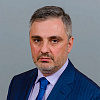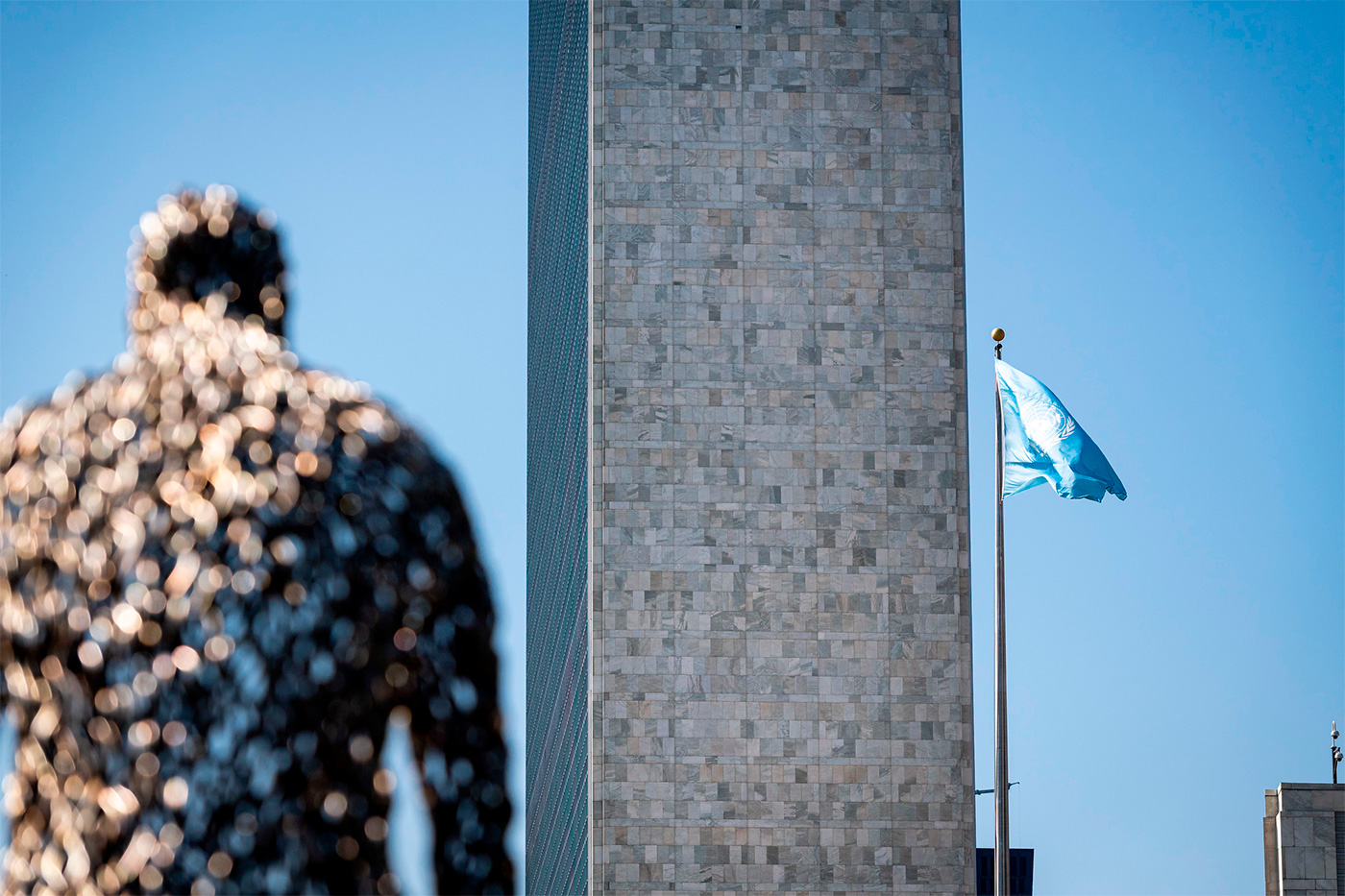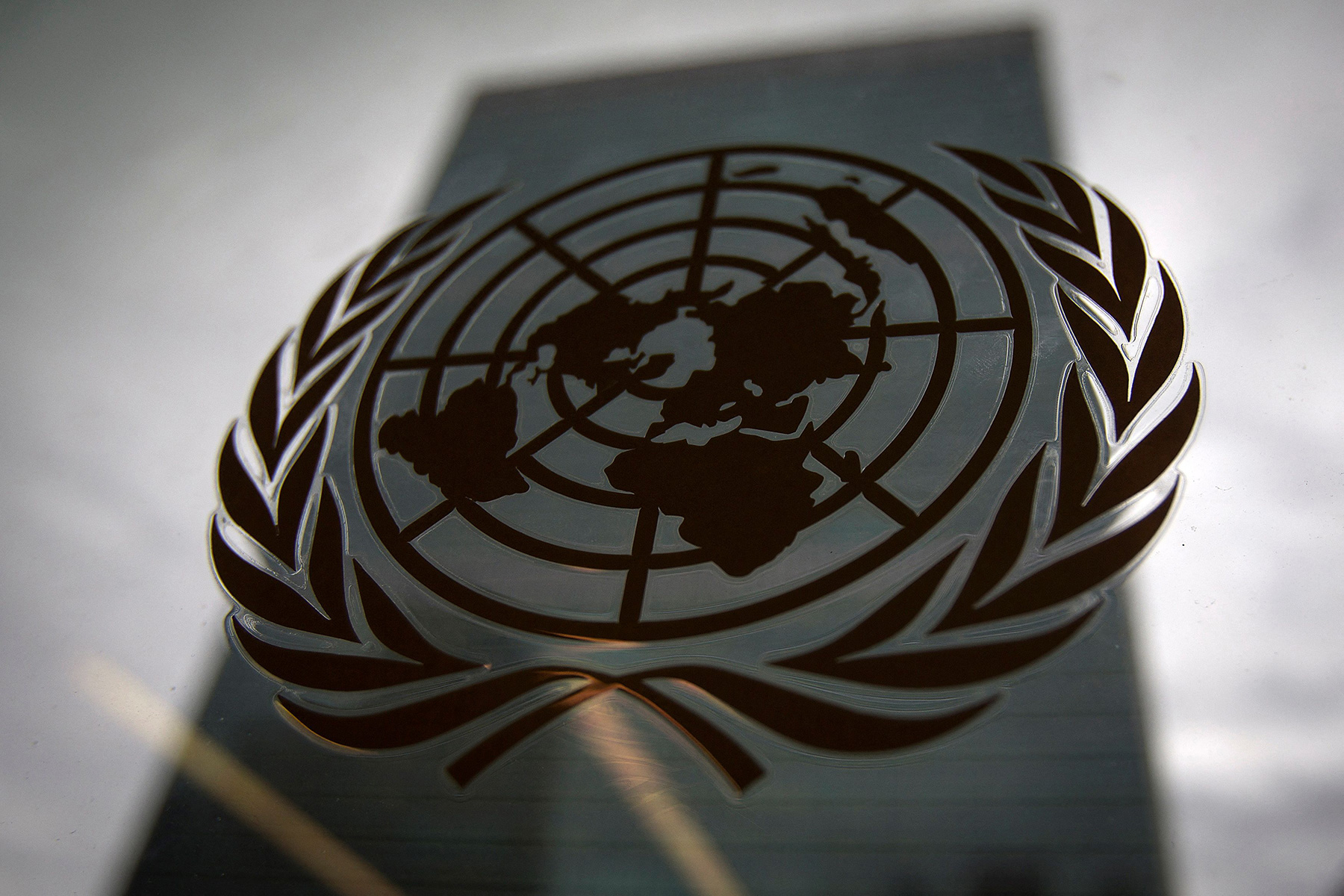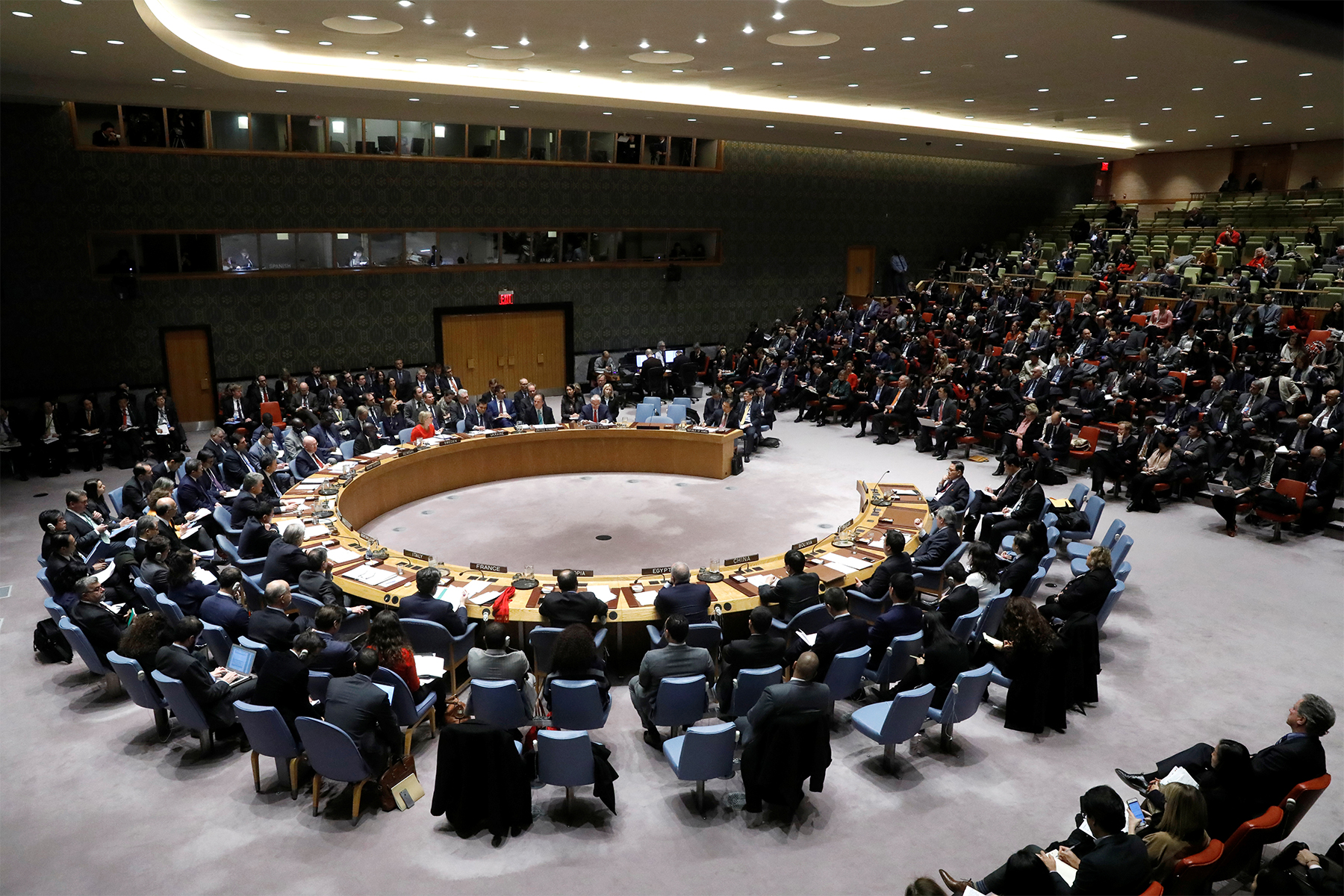In the run-up to the 77th session of the UN General Assembly, U.S. Permanent Representative to the United Nations Ms. Linda Thomas-Greenfield gave a keynote address in San Francisco, where in 1945, at the initiative of the USSR, the U.S. and the U.K., representatives of the UN founding nations held a conference. After a pompous reference to the 33rd U.S. President Harry Truman, who stated at the opening of the San Francisco conference that “the responsibility of the great powers is to serve, and not to dominate the peoples of the world,” the American representative immediately made it clear “who calls the shots” by emphasizing Washington’s role as the largest contributor to the UN budget.
Among the priority issues announced by the U.S. Permanent Representative are reforming the UN Security Council and other institutions, the way the Council’s permanent members resort to their veto powers, as well as holding a food security summit on the sidelines of the 77th session of the UN General Assembly, where U.S. President Joe Biden is expected to participate as a co-chair.
The American speaker has been ambiguous as to the changes in the composition of the UN Security Council, only stating that “we should forge consensus around sensible and credible proposals to expand the Security Council’s membership.” Washington’s preferences regarding candidates for permanent seats on the UN Security Council have largely remained unchanged.
In the run-up to the 77th session of the UN General Assembly, U.S. Permanent Representative to the United Nations Ms. Linda Thomas-Greenfield gave a keynote address in San Francisco, where in 1945, at the initiative of the USSR, the U.S. and the U.K., representatives of the UN founding nations held a conference. After a pompous reference to the 33rd U.S. President Harry Truman, who stated at the opening of the San Francisco conference that “the responsibility of the great states is to serve, and not to dominate the peoples of the world,” the American representative immediately made it clear “who calls the shots” by emphasizing Washington’s role as the largest contributor to the UN budget. At the same time, she compared the amount of the U.S. contribution to those of Russia and China. Given that tirades against Moscow and Beijing have become a mundane practice on the eve of major international events, Thomas-Greenfield did not do without a sweeping condemnation of the special military operation in Ukraine and the human rights situation in the Xinjiang Uygur Autonomous Region of China.
Among the priority issues announced by the U.S. Permanent Representative are reforming the UN Security Council and other institutions, the way the Council’s permanent members resort to their veto powers, as well as holding a food security summit on the sidelines of the 77th session of the UN General Assembly, where U.S. President Joe Biden is expected to participate as a co-chair.
Reforming the UN Security Council
In the context of reforming the UN Security Council, Thomas-Greenfield stated that “we should not defend an unsustainable and outdated status quo—instead, we must demonstrate flexibility and willingness to compromise in the name of greater credibility and legitimacy.” The U.S. will continue efforts similar to Washington’s co-sponsorship of UN General Assembly Resolution 76/262, adopted on April 26, 2022, which decreed that the General Assembly Chairperson shall convene, within 10 business days of the veto by one or more permanent members of the UN Security Council, a formal meeting to hold debate on the situation that triggered the veto.
It is also pertinent to note that the American speaker has been ambiguous as to the changes in the composition of the UN Security Council, only stating that “we should forge consensus around sensible and credible proposals to expand the Security Council’s membership.”
Washington’s preferences regarding candidates for permanent seats on the UN Security Council have largely remained unchanged. In September 2021, President Biden reiterated U.S. support for India’s permanent membership on a reformed UN Security Council and for “other countries who are important champions of multilateral cooperation and aspire to permanent seats on the UN Security Council,” although he did not mention any specific countries. In May 2022, similar support was expressed for Japan. To a certain extent, support for the Indian and Japanese candidacies is dictated by the U.S. desire to include New Delhi and Tokyo in the Quadrilateral Security Dialogue (Quad)[1], which experts have dubbed “an anti-Chinese military alliance” and “an Asian NATO”.
In reforming the UN Security Council, however, it is necessary to pay heed to the position of all its members, not just to the declaratory statements of a single permanent member state. Given that India and Japan are China’s military and political rivals, Beijing will definitely scuttle New Delhi’s and Tokyo’s bids for permanent membership in the UN Security Council. It stands to reason that one could hardly expect Moscow to endorse Japan’s candidacy, with Japan’s illegitimate unilateral sanctions imposed against Russia, the country’s persisting territorial claims as well as Tokyo’s obvious allegiance to the United States. The same applies to Germany’s application for membership in the elite club. As Russian Foreign Minister Sergey Lavrov pointed out in June 2022, “the inclusion of Germany and Japan in the UN Security Council as permanent members would add no value to that body; this will be nothing more than an obedient alignment of Western nations. We have already stated that India, Brazil are strong candidates and that it is long overdue to increase the representation of the African continent.”
Veto instrument
As for the veto as a voting instrument at the UN Security Council, Thomas-Greenfield emphasized that the U.S. will refrain from the use of the veto “except in rare, extraordinary situations.” She pointed out that since 2009 (she probably meant the Democratic Administration led by 44th President Barack Obama rising to power as her reference point), the U.S. has vetoed only four times, while Russia has done so 26 times, including 12 times together with China. The Ambassador thereby confirms that the “Arab spring” scenario, launched under President Obama and aimed at overthrowing President of Syria Bashar al-Assad, who is disagreeable to Washington, is hindered by Russia’s and China’s consistent policy in the UN Security Council. It was the repeated use of the Russian and Chinese veto power that prevented the Libyan scenario from developing in Syria. Blocking the draft “Ukrainian” resolution blaming Russia for “aggression” against Ukraine on February 25, 2022 was understandably a matter of principle for Moscow.
However, if we take a look at the recent history of the veto on the UN website,the U.S. clearly abused its right from 1990 to 2009 by vetoing 15 times, Russia—three times, China—twice, Russian-Chinese blocking worked twice.. For example, the prospect of Washington using the veto is a sensitive factor for Palestine, a nation that has not so far taken the risk of formally applying for full UN membership, given that the procedure of admitting new members requires a vote in the UN Security Council.
Thomas-Greenfield also failed to mention that it was Washington that initiated the veto, stemming from the requirement of unanimity among the five great powers. At the San Francisco Conference of 1945, where the UN Charter was being debated, Australia and Latin American countries “rebelled” against the veto. Still, U.S. representative Tom Connally theatrically tore up his copy of the Charter, saying to the dissenters, “Well, go home and report that you torpedoed the veto. But don’t forget to add that by doing so you have destroyed the UN Charter.”
In those days, the reasoning of opponents of the veto was not much different from that of their contemporary fellow-thinkers. The underlying premise was that sovereign equality—one of the UN cornerstones—is incompatible with the actual status quo, where a number of nations are endowed with substantial extra powers. Critics of the consensus principle among the permanent members sought to narrow the scope of the veto. In particular, attempts have been made to carve out some international conflicts from the jurisdiction of the UNSC by placing primary responsibility for their settlement on the relevant regional structures.
In 2013, France initiated a discussion on the need for the five permanent members of the UN Security Council to voluntarily waive their veto rights in situations where mass crimes are committed. This initiative was proposed by French President Francois Hollande on September 24, 2013, at the 68th session of the UN General Assembly. He called upon the permanent members of the UN Security Council to define a “code of good conduct” amid the situation in Syria and together renounce their veto powers in the event of a mass crime. French Foreign Minister Laurent Fabius later explained that the five permanent members of the UN Security Council could agree to regulate the veto instrument voluntarily, in which case no amendments to the UN Charter would be required. The implication was that the permanent members could agree not to use the veto if the Security Council had to decide on a mass crime. The criterion for this kind of step, according to the French, was that at least 50 member states (about a quarter of the total) ask the Secretary General of the UN to define the nature of the crime. If Secretary General made a positive decision, a “code of good conduct” would then immediately come into force.
Given that the initiative was aimed at limiting the veto power of Russia and China, who have jointly blocked a number of unilateral UNSC resolutions on Syria since 2011, it was soon negated by Moscow and Beijing. It seems that the same fate awaits the U.S. move.
It is important to understand that the veto is one of the UN Charter’s main “pillars”. The veto is not a privilege—rather, it entails an enormous responsibility, serving as a guarantee that the decisions made by the Security Council reflect a balanced view of the international community. It is safe to say that the UNSC would have lost its intended purpose without the veto.
In this regard, the U.S. initiative appears to be an alarming signal of its desire to dismantle the proven system of mutual control accepted by the great powers, shifting the center of gravity in making key decisions from the UN Security Council to NATO, G7 and the EU, which are all under Washington’s control.
Sustainable development and food security
As indicated above, within the high-level segment of the 77th session of the UN General Assembly, Joe Biden is to participate in the food security summit, seeking to promote the roadmap signed by 103 states. Thomas-Greenfield believes the U.S. is at the forefront, providing billions of dollars as humanitarian relief efforts.
At the same time, with Russia groundlessly blamed for a global food crisis, it would be appropriate to remind of the destructive policies carried out by the United States and their allies on achieving the SDGs and combatting hunger. Despite the grave socio-economic consequences of the new coronavirus COVID-19 pandemic for the international community, the U.S. position on preventing the adoption of UN General Assembly resolutions (14 in total), which were aimed at promoting sustainable development and lasting peace as well countering unilateral financial and economic measures, has remained unchanged as it curbs humanity’s efforts to ensure the right to development and decent living.
Thus, under Biden’s administration, the United States (together with Israel) voted against the annual UN General Assembly resolution № 76/166 The Right to Food, dated December 16, 2021, which represents one of the most important elements in implementing the Sustainable Development Goal № 2, called to eliminate hunger, ensure food security, improve nutrition and promote sustainable agriculture. In particular, the UN General Assembly’s resolution reaffirms the need to refrain from unilateral measures at variance with international law and the UN Charter in endangering food and nutritional security. In other words, the General Assembly calls Washington’s attention to the negative impact of U.S. sanctions on vulnerable groups.
1. Alongside India and Japan, other participants to it include the United States and Australia.







